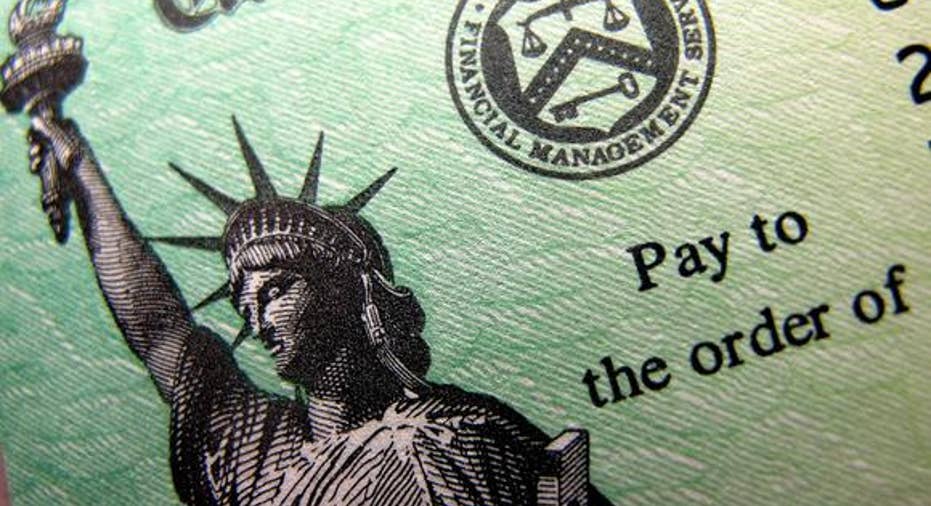Someone Stole My Tax Refund. Will I Ever Get It Back?

If an identity thief beat you to filing your own taxes this year, it’s likely not going to make you feel better knowing you aren’t alone, but it’s true.
The IRS announced earlier this year that it’s anticipating $21 billion in tax refund fraud in 2016.
What might make you feel a bit better is knowing the IRS will still pay your refund to you, even if it has already paid a fraudster, but there are going to be some delays. And some paperwork. And some hassles.
If you’ve received a notice from the IRS stating that more than one return has been filed in your name, or if you believe your identity has been used fraudulently, here’s how to make the process of getting your refund and protecting yourself from further fraud as smooth as possible.
1. Report the Fraud
If your Social Security number was compromised and you think you may be the victim of tax-related identity theft, file a report with your local police and file a complaint with the Federal Trade Commission at www.identitytheft.gov or by calling the FTC Identity Theft Hotline at 1-877-438-4338.
2. Contact the IRS
Once you’ve filed a police report, file an IRS Form 14039 Identity Theft Affidavit. Print the form and mail or fax it according to the instructions.
3. Pay Your Taxes
Be sure to continue to pay your taxes and file your tax return on time, even if you must do so by mailing in paper forms.
4. Alert the Credit Bureaus
If a thief had enough of your personal information to file a false tax return, chances are he or she could also have opened new credit card accounts or taken out a loan in your name.
Contact the three major credit reporting agencies — Equifax, Experian and TransUnion — and ask that a fraud alert be placed on your credit records. These alerts, which last 90 days, can be renewed if necessary, and warn potential creditors that you are an identity theft victim and they must verify your identity before issuing credit. You may also want to consider a credit freeze.
5. Check Your Credit Reports & Credit Scores
You are entitled to a free copy of your credit report from each of the three agencies. Check them carefully for unauthorized activity. Look at your history as well as recent activity. Just because you were first alerted to the problem through a false tax return does not mean that’s where the ID theft started.
A sudden drop in credit scores can be a sign your identity has been stolen. You can monitor your standing by viewing your two free credit scores each month on Credit.com.
6. Close Fraudulent Accounts
Close any credit or financial account that has been tampered with by a thief or opened without your permission. Here is a guide on how to close bogus accounts.
7. Change Your Passwords
The IRS renewed a consumer alert earlier this year for email schemes after seeing an approximate 400% surge in phishing and malware incidents so far this tax season.
Thieves know people use the same password for multiple websites and accounts. That means it’s a good idea to change your passwords regularly even if you aren’t a victim of identity theft. If you are, you should absolutely change them.
8. Stay Diligent
If you contacted the IRS about taxpayer ID theft and did not receive a resolution, contact the Identity Protection Specialized Unit at 1-800-908-4490 about your case.
Remember, filing your taxes as early as possible is the best way to minimize the odds of falling victim to taxpayer identity theft.
9. Stay Calm & Be Patient
A typical case of ID theft can take more than 180 days to resolve, according to the IRS. In fact, an audit released last year by the Treasury Inspector General for Tax Administration found that delay lasted an average of 278 days — more than nine months.
Just remember, the IRS will eventually pay you your refund, but if you’re experiencing financial difficulties because of the delay, you can contact the taxpayer advocate service, an independent organization within the IRS, at 877-777-4778.
More From Credit.comHow to Use Free Credit MonitoringWhat's a Good Credit Score?5 Tips for Consolidating Credit Card Debt
This article originally appeared on Credit.com.
Constance is an editor and writer at Credit.com. Prior to joining us, she worked as a Web producer for CNBC, NBC News, MSN.com and The Dallas Morning News. More by Constance Brinkley-Badgett



















